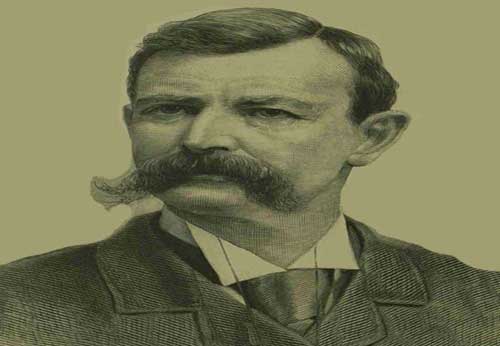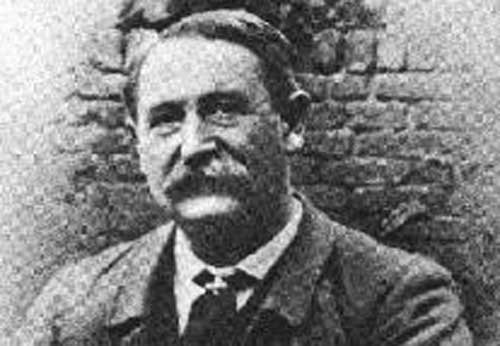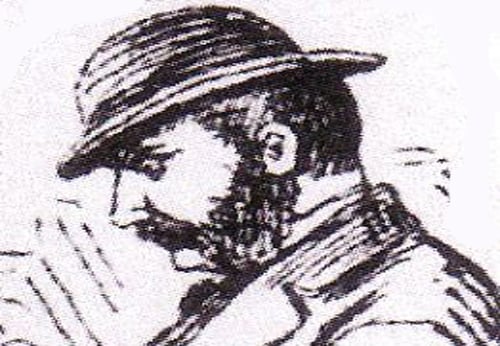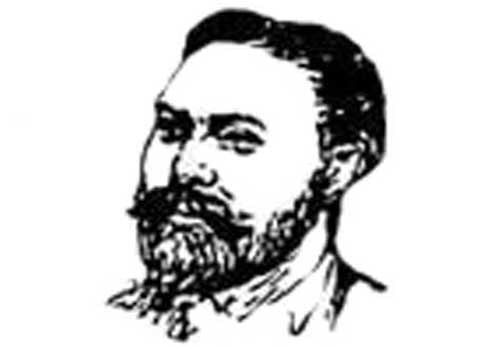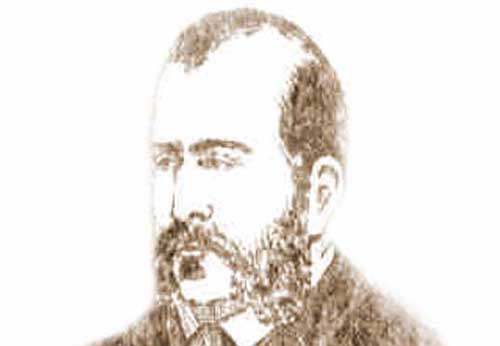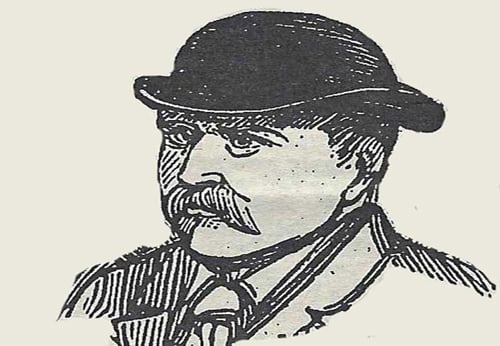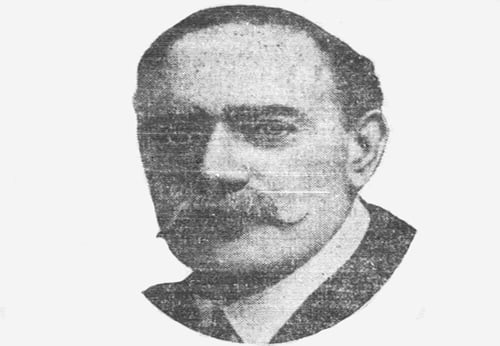- Dr. Robert Anderson was the Assistant Metropolitan Police Commissioner throughout the Jack the Ripper murders.
- His first day on the job, 1st September, 1888, coincided with the early days of the investigation into the crimes.
- Anderson, though, was suffering from exhaustion when he took up his post, and his doctor prescribed a recuperative break.
- On 8th September, 1888, Anderson left London for Switzerland and did not return until October, 1888..
- Site Author and Publisher Richard Jones
- Richard Jones
DR. ROBERT ANDERSON

ASSISTANT METROPOLITAN POLICE COMMISSIONER
Dr. Robert Anderson became the Assistant Commissioner of the Metropolitan Police, and head of the Criminal Investigation Department, in September, 1888, following the resignation of James Monro.
Anderson was a Dublin born lawyer who had been brought to London in 1867 as part of an intelligence branch to combat the threat of Fenian terrorism.
When the branch was closed Anderson had remained behind as a Home Office "Advisor in matters relating to political crime."
He also controlled the spy Thomas Miller Beach (1841 - 1894) who had successfully infiltrated the Fenian movement.
BECOMES ASSISTANT POLICE COMMISSIONER
Anderson was relieved of all duties, except controlling Beach, by the then Home Secretary, Hugh Childers, in 1886, and had become Secretary of the Prison Commissioners when he was offered the post of Assistant Commissioner CID in August 1888.
In his memoirs The Lighter Side of My Official Life Anderson wrote of his appointment:-
Mr. Monro was not "an easy man to follow," and my difficulties in succeeding to the post were increased by the foolish ways of the Home Office, as well as by the circumstances of the times...”
SINISTER RUMOURS
He went on to explain that Sir Charles Warren had secured the support of the rank and file police officers but that, thanks to the treatment meted out to James Monro the detectives of the Criminal Investigation Department were somewhat demoralized and, as a consequence, were suspicious of him.
His position wasn't helped by a decision not to announce his appointment immediately.
In his memoirs he recalled that:-
...sinister rumours were in circulation as to the appointment of his successor. If the announcement had been made that, on his official retirement on the 31st of August, I should succeed to the office, things might have settled down. For all the principal officers knew and trusted me. But for some occult reason the matter was kept secret, and I was enjoined not to make my appointment known. I had been in the habit of frequenting Mr. Monro's room, as we were working together in political crime matters ; but when I did so now, and Sir Charles Warren took advantage of my visit to come over to see me, it was at once inferred that he was spying on me because I was Mr. Monro's friend....”
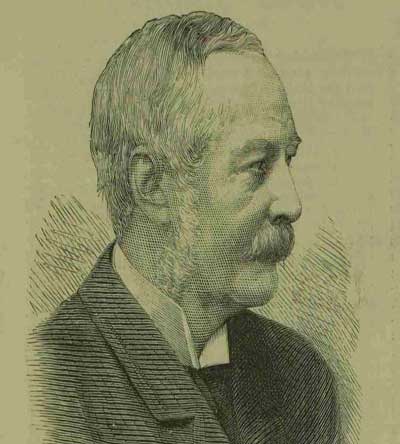
James Monro
Anderson's predecessor

Sir Charles Warren
Police Commissioner
GOES ON HOLIDAY
Furthermore, the fact that he had not taken an adequate holiday for several years meant that Anderson came to his post suffering from exhaustion, and his doctor instructed that he take a recuperative break.
His chair at Scotland Yard was barely warm when on the 8th September, the day of the second Jack the Ripper Murder, that of Annie Chapman, Anderson left London for Switzerland, effectively leaving the detective department of the Metropolitan Police leaderless at a time when they were facing the biggest challenge in their history. His absence was soon noted by the press and, according to his memoirs:-
...letters from Whitehall decided me to spend the last week of my holiday in Paris, that I might be in touch with my office. On the night of my arrival in the French capital two more victims fell to the knife of the murder-fiend; and next day's post brought me an urgent appeal from Mr. Matthews to return to London; and of course I complied...”
ARRIVES BACK IN LONDON
When Anderson arrived back in London the panic and speculation surrounding the Whitechapel murders had reached fever pitch. He later wrote:-
When the stolid English go in for a scare, they take leave of all moderation and common sense. If nonsense were solid, the nonsense that was talked and written about those murders would sink a Dreadnought.”
As far as the victims were concerned he commented that they:-
...belonged to a very small class of degraded women who frequent the East End streets after midnight, in hope of inveigling belated drunkards, or men as degraded as themselves...”
REINVESTIGATES THE WHOLE CASE
He therefore set himself to "...reinvestigating the whole case" and next day he met with the Home Secretary and Sir Charles Warren.
In The Lighter Side of My Official Life he recalled their conversation:-
..."We hold you responsible to find the murderer," was Mr. Matthews' greeting to me. My answer was to decline the responsibility. "I hold myself responsible," I said, "to take all legitimate means to find him..."”
He also made comment on the local police's ambivalence towards the local prostitutes that had come about in the wake of the Elizabeth Cass the previous year:-
...But I went on to say that the measures I found in operation were, in my opinion, wholly indefensible and scandalous; for these wretched women were plying their trade under definite Police protection. Let the Police of that district, I urged, receive orders to arrest every known "street woman" found on the prowl after midnight, or else let us warn them that the Police will not protect them. Though the former course would have been merciful to the very small class of women affected by it, it was deemed too drastic, and I fell back on the second.”
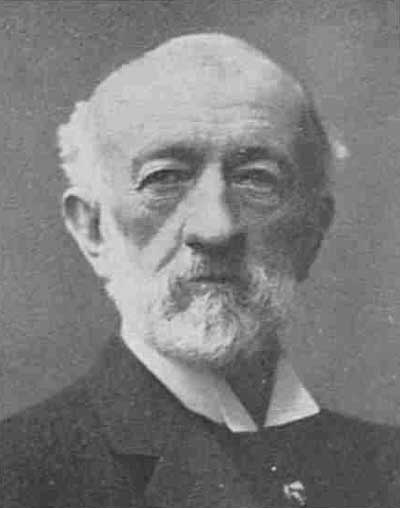
Sir Robert Anderson
1910
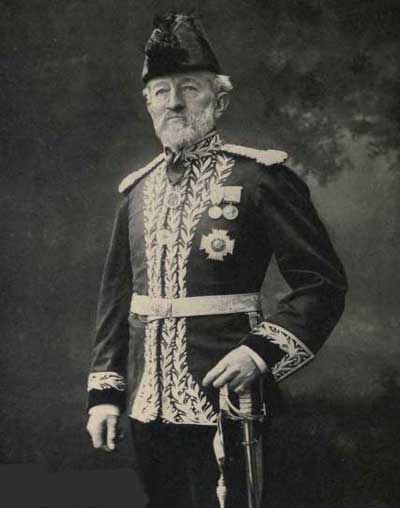
Sir Robert Anderson
1907
THE HIGHEST RANKING OFFICER ON THE CASE
Anderson was the highest ranking officer with direct involvement on the Jack the Ripper case and as such was in a position to know more of the evidence and information about the Whitechapel Murders than almost any other officer.
However his immediate subordinate was the officer who, probably, had what today would be termed "the big picture," for, whilst Anderson was away on his recuperative break in Switzerland overall charge of the investigation was given to Chief Inspector Donald Sutherland Swanson.
Article Sources
Western Daily Press. Tuesday, 19th November, 1918
Sir Robert Anderson. The Lighter Side Of My Official Life Hodder and Stoughton (1910)
Paul Begg, Martin Fido and Keith Skinner. The Jack the Ripper A to Z. Headline Book Publishing Plc. (1992)
Richard Jones. Uncovering Jack The Ripper's London. New Holland Publishing (2007)

